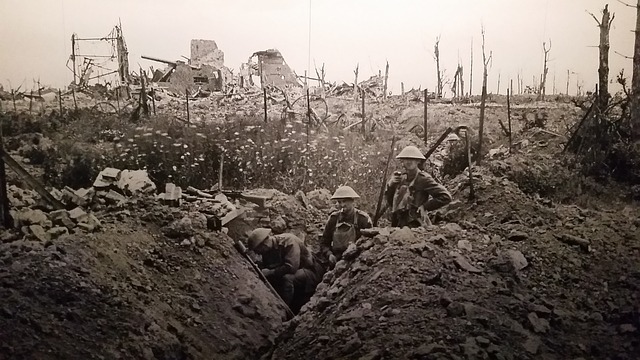The First World War, which originated in mainland Europe lasted from 28 July 1914 to 11 November 1918. Today, we see it as one of the most pointless wars in human history. Sparked by the assassination of Archduke Franz Ferdinand, the egotistical monarchs of Europe escalated the situation war ranged from the vast steppes of Russia to Germany’s colonies in Africa and Asia.
On one side was the Triple Entente, composed of Russia, Britain, and France. On the opposite side were the Central Powers, who were Germany, Austria-Hungary, Bulgaria, and the Ottoman Empire. By it’s in, other nations like Japan, the United States, and Italy would all join in the bloodshed.
By the end of the war, most of Europe’s monarchies ended, economies destabilized, and the seeds of World War Two were planted. It is hard to use terms such as positive effects when discussing a war that left over 20 million dead, but history is more complicated than that. We will take a look at the positive and negative effects of World War One below.

Positive impact of World War 1:
The League of Nations: This organization originated with President Woodrow Wilson’s Fourteen Points speech in January 1918. By December, he was able to negotiate the inclusion of the League of Nations in the Treaty of Versailles. It was the first example of an international organization that could employ its clout and affect a reconciliation between two distressed nations. While the League of Nations was profoundly ineffective, it did lay the groundwork for a future international body. The UN and all the good its done would not exist today without this precursor.
Beginning of the End For Colonialism: The start of the First World War set the stage for the end of colonial rule all over the world. India had been advocating for her independence in Britain for half a century when hostilities broke out in Europe. Early in the war, it became deeply apparent the UK and other colonial powers needed the additional manpower of their colonies. They used independence as a carrot to mobilize new armies. Sadly, it would take another world war before any colonies were able to fully able to shake off the yoke of Europe.
Women’s rights: World War One was the first case of total war, where the home front was just as important as the real front. Because of this, the government’s desperately needed women to step into the workforce to meet weapon demands. With this role came more independence in society. Women never lost this taste for freedom and independence, leading to a greatly expanded suffrage movement across the world.
The Balance of Power: At the war’s end, the European powers that had dominated the planet for over four hundred years were in absolute shambles. As a result, the power began to shift towards the United States and other nations around the world. Whether this is a positive effect certainly depends on what country you live in.
The End of Major Monarchies in Europe: When the war ended, Kaiser Wilhelm, Tsar Nicholas II, and Kaiser Franz Joseph all stepped down. This would eventually lead toward a more democratic Germany, Austria, and Hungary in the late 20th century.
Negative impact of World War 1:
Loss of life: World War One is the second most brutal war fought in modern history. By the end, over 9 million soldiers and 11 million civilians were dead. Countries lost enormous chunks of their population to famine and combat. The Ottoman Empire alone lost 20% of its population!
New Horrific Forms of Warfare: If the sheer brutality of guns were not enough, both sides introduced new weapons and strategies. For the first time, humans used chemical weapons in war. Mustard Gas annihilated enemy combatants by slowly suffocating and blinding them. Those who survived suffered from blistered skin, respiratory disorders, and vision damage. Artillery barrages became common as well as thousands upon savages decimated enemy fortifications in a matter of minutes.
Famine During and After the War: As a result of blockades and widespread disruption, the war disrupted supply chains across Europe. It took months to reestablish supply lines for many regions leading to starvation even after the war ended.
Rise of Fascism and World War Two: After the war, things were never the same for many who fought. Young men came home with PTSD after experiencing horrible conditions. At home, economies were devastated, and many lost their livelihood. These disaffected people included even Adolph Hitler, who as able to rally the young men who thought their country had betrayed them into eventually forming the Nazi party. This would finally set the stage for World War Two.
These are some of the positive and negative effects associated with World War 1. Some would say this was the beginning of the modern world, as it dictated what our world looks like today. Almost every event from the Great Depression to the Cold War would never have happened if Franz Ferdinand didn’t take a bullet on that fateful day.
- Tulip Mania – The Story of One of History’s Worst Financial Bubbles - May 15, 2022
- The True Story of Rapunzel - February 22, 2022
- The Blue Fugates: A Kentucky Family Born with Blue Skin - August 17, 2021
